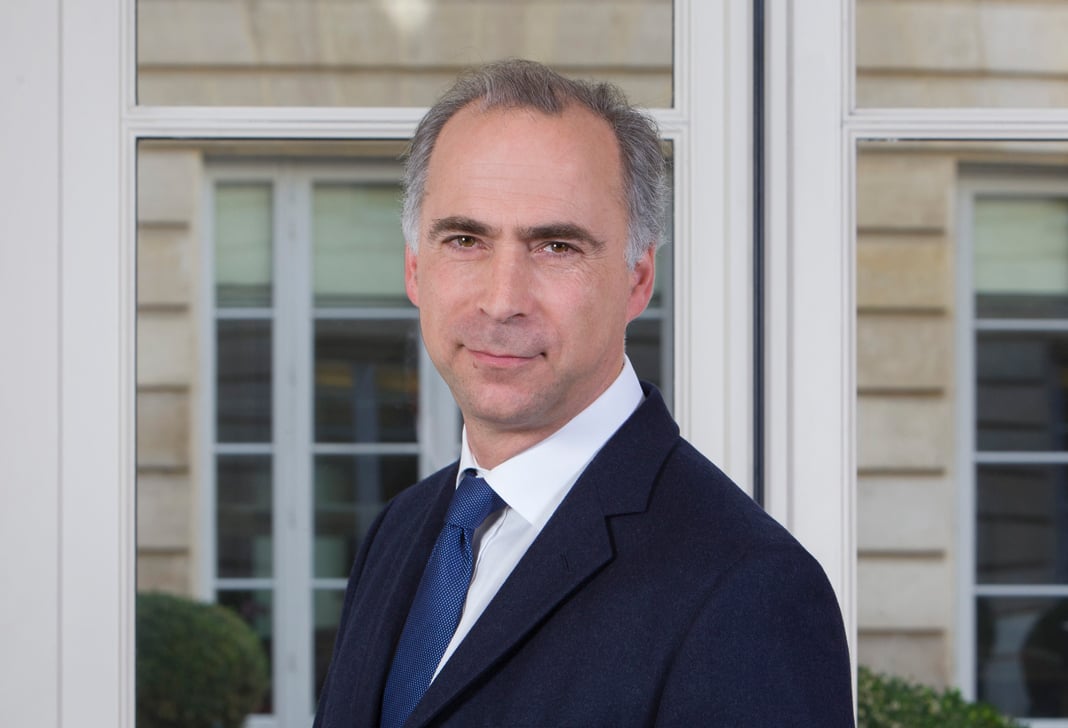
Online Terrorist Propaganda: France and UK Put Internet Giants in the Cross-Hairs
In Short
The Situation: For many reasons—including the obscure organizational structure and procedural slowness of internet companies—Europe's war against online terrorist propaganda has been largely ineffective.
The Action: A joint antiterrorism effort announced by British Prime Minister Theresa May and French President Emmanuel Macron proposes specific measures relating to the timely suppression of illicit content, preemptive detection and deletion of such content, and penalties for noncompliance.
Looking Ahead: While there is no implementation schedule for the effort, some internet companies are already moving toward self-policing. Also, the EU is working on a legislative proposal targeting the anti-illicit content obligations of hosting-providers.
On June 14, 2017, British Prime Minister Theresa May and French President Emmanuel Macron held a joint press conference to declare the implementation of a "very concrete" antiterrorist plan. One of the plan's three main objectives is to reinforcement the obligation of internet platforms to suppress terrorist propaganda contents. The two leaders did not indicate whether these obligations would take the form of legal obligations or negotiations with the industry, nor was there any indication of an implementation schedule. If the plan is incorporated into law, such obligations should be adopted as part of the future antiterrorist law previously announced by the President of the Republic.
The new obligations of the internet platforms would primarily deal with (i) preventing a delayed suppression of reported illicit content (propaganda reaches 50 percent of its audience within the first two hours of dissemination), (ii) the detection and ex ante deletion of illicit contents thanks to technical solutions (if an internet platform cannot be obligated to implement a general surveillance mechanism for illicit content, then the platform is liable if it does not carry out reasonable means to block access when it is aware of such content), and (iii) penalties for failing to comply.
"[The task plan] first aims to reinforce the commitments and obligations of online operators in order to suppress the contents that promote, in all kinds of media, hate and terrorism," Emmanuel Macron.
This French-British announcement follows a statement made at the last G7 Summit in Taormina, Sicily, that called on the internet industry (i) to reinforce its efforts to stop terrorist content and (ii) develop and share "new technology and tools to improve the automatic detection of content promoting incitement to violence." The EU is also working on a legislative proposal to reinforce the obligations of hosting-providers in the fight against illicit content.
The industry responded. Just one day after the French-English announcement, Facebook presented its measures to fight illicit content, which include the use of artificial intelligence systems to detect ex ante illicit content and the recruitment of 3,000 moderators. And Google introduced new measures to identify and tackle terrorist content online.
Reminder of the French Legal Regime
The penal liability for hosting providers is set out in Article 6 of the Law n° 2004-575 of June 21, 2004, for the Confidence in the Digital Economy. The law states that hosting providers are not liable for activities or information hosted on their platform unless they have knowledge of illicit content and do not promptly delete it. Hosting providers are presumed to have knowledge of illicit content when they receive notification of specific information outlined in the law. This information includes the date, identification of the notifying party, identification of the hosting provider, correspondence sent to the author of the content, or a justification of its absence. Hosting providers must implement a reporting mechanism allowing anyone to report illicit content. If reported illicit content is not deleted within 24-hours of notification, the authority may report the electronic address to the hosting provider, which must block their access without delay. The effective execution of these legal provisions remains difficult.
Protections and Liability in the UK
In the UK, e-commerce service providers have a number of protections that limit their liability for illegal activities or information transmitted, cached, or hosted on their systems (The Electronic Commerce (EC Directive) Regulations 2002). A service provider is not liable for the transmission of illegal content provided that it does not initiate the transmission, select the receiver, or select or modify the information transmitted. There is similar protection for cached information provided that the provider acts expeditiously to remove information where it has actual knowledge that the source has been removed or restricted. Finally, a provider is not liable for hosted information where it does not have actual knowledge of illegality provided that it acts expeditiously to remove or disable access to the information when it is aware of its nature.
These protections depend on the absence of knowledge and the regulations provide that a court must take into account whether the provider was notified of information through the contact specified by the provider and whether the notification contains the name and address of the sender, details of the location of the information, and its unlawful nature. There are regulations applying similar rules to specific terrorism offences (Electronic Commerce Directive (Terrorism Act 2006) Regulations 2007). The main risk to a service provider is that by providing an editorial or monitoring function it could incur liability for content. To rely on these protections it is important that a provider puts in place proper procedures to remove notified material.
States had to raise their voices because hosting providers hide behind complex international, technical, and corporate organizations to defeat measures to suppress illicit content. Such action begs the question, will the dogma of internet freedom stand, particularly in the face of terrorist threats?
Three Key Takeaways
-
While it is not clear if the measures will take the force of law, or rather be agreed to and arranged with internet companies, a joint effort by UK and French leadership is targeting online terrorist propaganda. No implementation process or schedule was announced.
-
The effort prioritizes the fast deletion of illicit content and the implementation of mechanisms for their ex ante detection.
-
Following the announcement of the plan, Facebook and Google have independently taken actions to fight and prevent illicit content.
Lawyer Contacts
For further information, please contact your principal Firm representative or one of the lawyers listed below. General email messages may be sent using our "Contact Us" form, which can be found at www.jonesday.com/contactus/.
Rémy Fekete
Paris
+33.1.56.59.39.39
rfekete@jonesday.com
Jonathon Little
London
+44.20.7039.5224
jrlittle@jonesday.com
Elizabeth Robertson
London
+44.20.7039.5204erobertson@jonesday.com
Jones Day publications should not be construed as legal advice on any specific facts or circumstances. The contents are intended for general information purposes only and may not be quoted or referred to in any other publication or proceeding without the prior written consent of the Firm, to be given or withheld at our discretion. To request reprint permission for any of our publications, please use our "Contact Us" form, which can be found on our website at www.jonesday.com. The mailing of this publication is not intended to create, and receipt of it does not constitute, an attorney-client relationship. The views set forth herein are the personal views of the authors and do not necessarily reflect those of the Firm.




